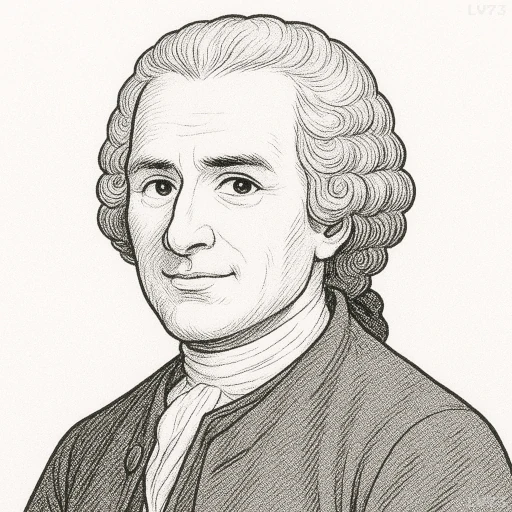“Our affections as well as our bodies are in perpetual flux.”

- June 28, 1712 – July 2, 1778
- Born in Geneva
- Philosopher, political philosopher, writer, composer
table of contents
Quote
“Our affections as well as our bodies are in perpetual flux.”
Explanation
In this quote, Jean-Jacques Rousseau reflects on the ever-changing nature of human emotions and physical states. He suggests that both our affections (feelings, desires, and attachments) and our bodies (health, appearance, and physical sensations) are constantly in a state of change. This idea speaks to the transitory nature of human existence, where nothing—whether physical or emotional—remains fixed or stable. Rousseau’s observation emphasizes the impermanence of life, suggesting that we must accept that both our internal experiences and external conditions are in constant flux, which can lead to uncertainty and instability.
Historically, Rousseau’s belief in the fluidity of human emotions and bodies aligns with his larger philosophical views, particularly his critiques of society and the natural world. He often argued that human beings were better off in their natural state, free from the constraints of society, which artificially fixed roles and expectations on them. In the face of a society that emphasized rigid social structures and ideals, Rousseau felt that our emotional and physical lives were stifled. His claim about the perpetual flux of affections points to his belief in the importance of embracing authentic human experience, where emotions are allowed to change and evolve freely, without being confined by societal pressures.
In modern times, this quote resonates with psychological and philosophical theories that recognize the fluidity of human nature. We now know that emotions are often temporary, influenced by a range of factors from neurochemistry to life circumstances. In terms of physical well-being, the human body also undergoes constant change, whether through aging, illness, or external influences. This recognition of flux is especially relevant in discussions around mental health, where emotional states can shift rapidly and unexpectedly. Rousseau’s quote reminds us that it is natural for both our emotions and physical states to evolve and that we must accept this dynamism as part of the human condition.
Would you like to share your impressions or related stories about this quote in the comments section?

